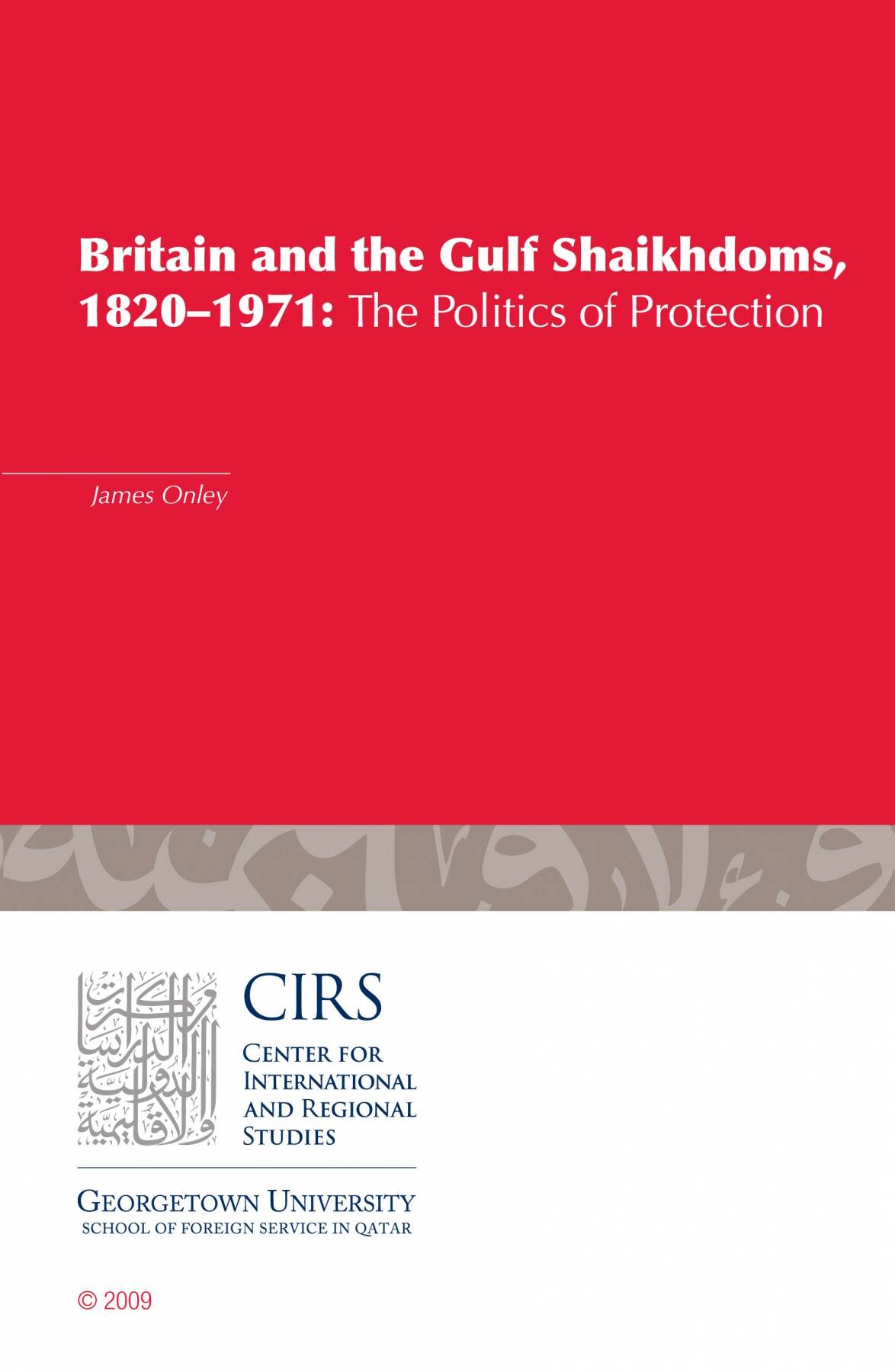Britain and the Gulf Shaikhdoms, 1820-1971: The Politics of Protection

To cite this publication: James Onley, “Britain and the Gulf Shaikhdoms, 1820-1971: The Politics of Protection,” CIRS Occasional Paper no. 4 (Doha, Qatar: Center for International and Regional Studies, 2009).
This article examines Britain’s protection of Kuwait, Bahrain, Qatar, the Trucial States (United Arab Emirates), and Oman during the era of British hegemony in the region: 1820–1971. It argues that Britain’s role as guardian of the Persian Gulf, beginning in 1835, was not imposed coercively, that Britain largely conformed to local expectations of a protector’s duties and rights, and that its record in Eastern Arabia was far better than its record elsewhere in the Middle East. It begins with an overview of regional insecurity before the Pax Britannica. It then examines why Britain came to defend Eastern Arabia and the advantages and disadvantages that entailed for the local rulers. It explains the legal status of the Gulf shaikhdoms and Oman resulting from their treaties with Britain and their close relationship with the British Empire. It also discusses Britain’s post-war attempts to develop these states, the nature of Anglo–American relations in the region, and the growing challenges to Britain’s position in Eastern Arabia in the 1950s–60s. It provides a new account of Britain’s withdrawal from the Persian Gulf, showing how Britain introduced defense arrangements that remain in place forty years on. It finishes with a reflection on Britain’s legacy in the Gulf today.